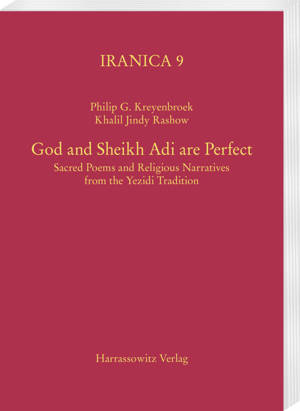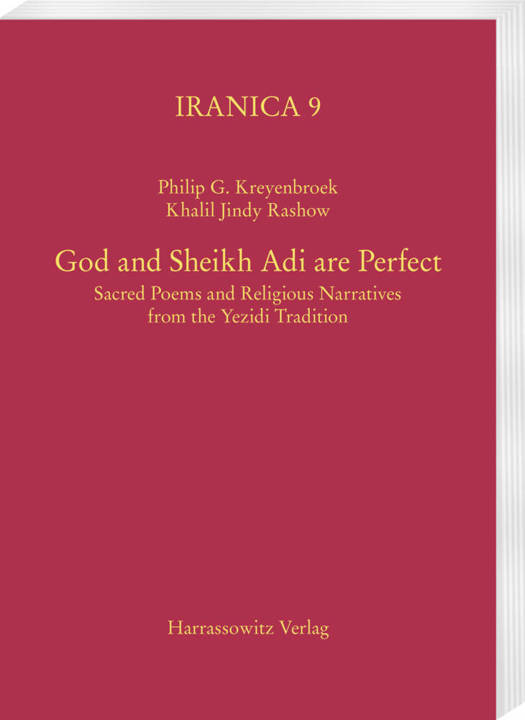
- Afhalen na 1 uur in een winkel met voorraad
- Gratis thuislevering in België vanaf € 30
- Ruim aanbod met 7 miljoen producten
- Afhalen na 1 uur in een winkel met voorraad
- Gratis thuislevering in België vanaf € 30
- Ruim aanbod met 7 miljoen producten
Zoeken
God and Sheikh Adi Are Perfect
Sacred Poems and Religious Narratives from the Yezidi Tradition
Philip G Kreyenbroek, Khalil J Rashow
€ 145,45
+ 290 punten
Omschrijving
Until the late 20th century the West was unaware of the existence of an extensive corpus of Yezidi religious texts. These were traditionally transmitted orally, and were kept secret from outsiders. It was not until the 1970s that a few Yezidi intellectuals began to commit these texts to writing. These first publications included only specimens of the most prestigious genres, which for a time were thought to be representative of Yezidi religious literature as a whole. It was later discovered, however, that this literature was far richer. Furthermore it became clear that an understanding of Yezidi oral culture as a whole was indispensable for a proper understanding of the religious texts.The present work offers the reader a representative selection of the main genres of Yezidi religious texts, with translation and commentary. The texts are intended, moreover, to cover the topics most often addressed in the Yezidi religious tradition.The first introductory chapter aims to introduce the reader to the Yezidi community's history, aspects of its religion, and its social structures and institutions. The next chapter focuses on some of the implications of the oral transmission of this literature and on its contents, especially the sacred history of Yezidism. The third chapter discusses aspects of orality and the transition to written culture, questions of performance and reception, and the formal characteristics of the various types of texts.
Specificaties
Betrokkenen
- Auteur(s):
- Uitgeverij:
Inhoud
- Aantal bladzijden:
- 435
- Taal:
- Engels
- Reeks:
- Reeksnummer:
- nr. 9
Eigenschappen
- Productcode (EAN):
- 9783447053006
- Verschijningsdatum:
- 1/01/2006
- Uitvoering:
- Paperback
- Formaat:
- Trade paperback (VS)
- Afmetingen:
- 175 mm x 244 mm
- Gewicht:
- 884 g

Alleen bij Standaard Boekhandel
+ 290 punten op je klantenkaart van Standaard Boekhandel
Beoordelingen
We publiceren alleen reviews die voldoen aan de voorwaarden voor reviews. Bekijk onze voorwaarden voor reviews.








